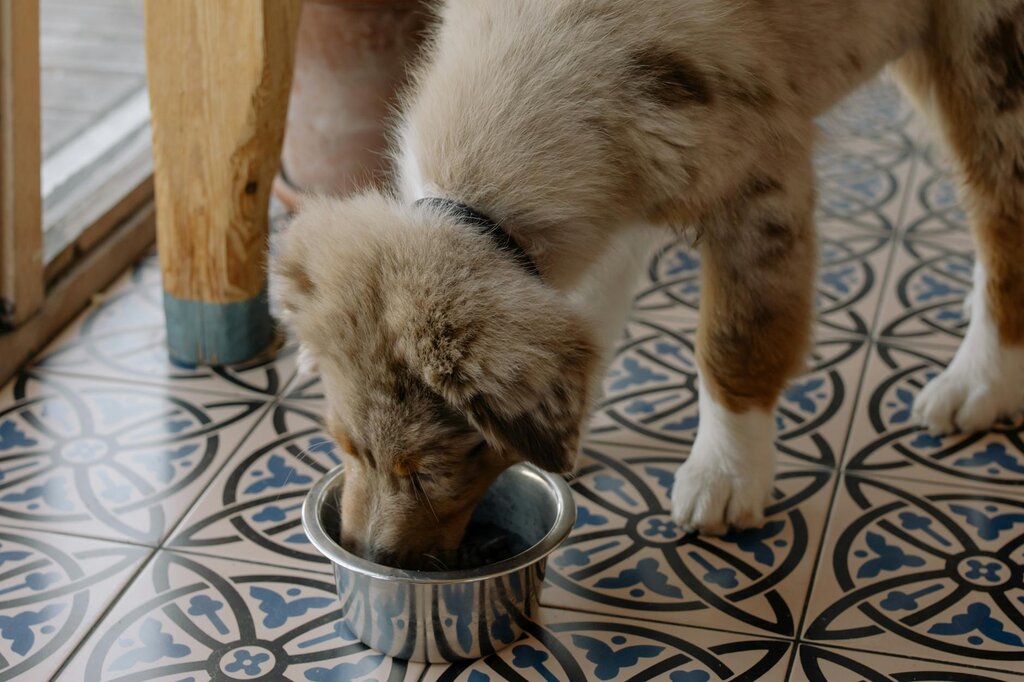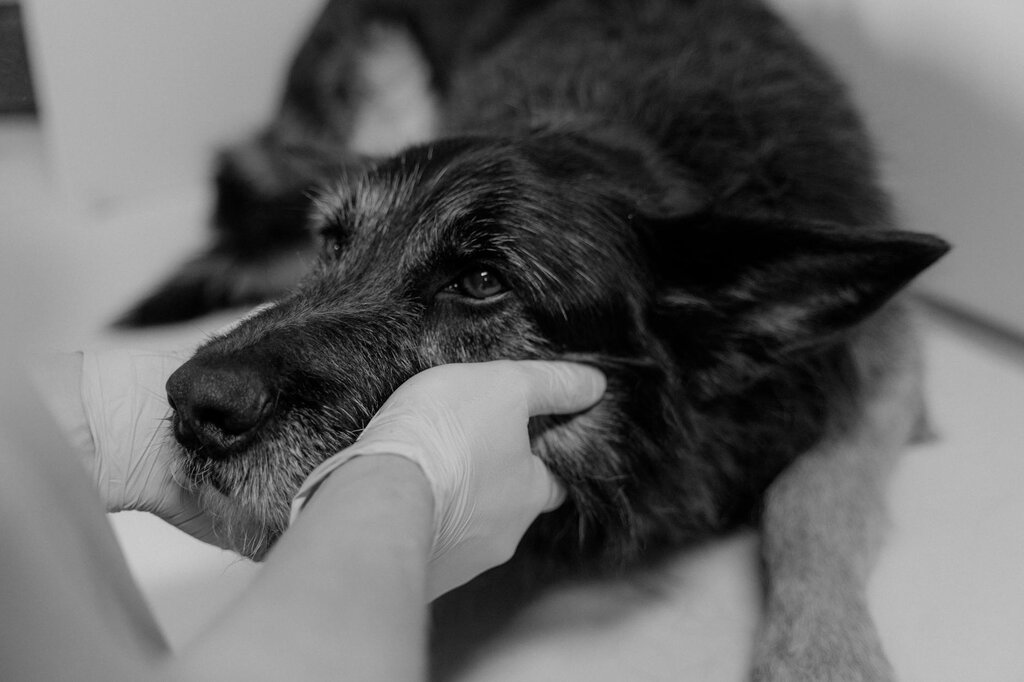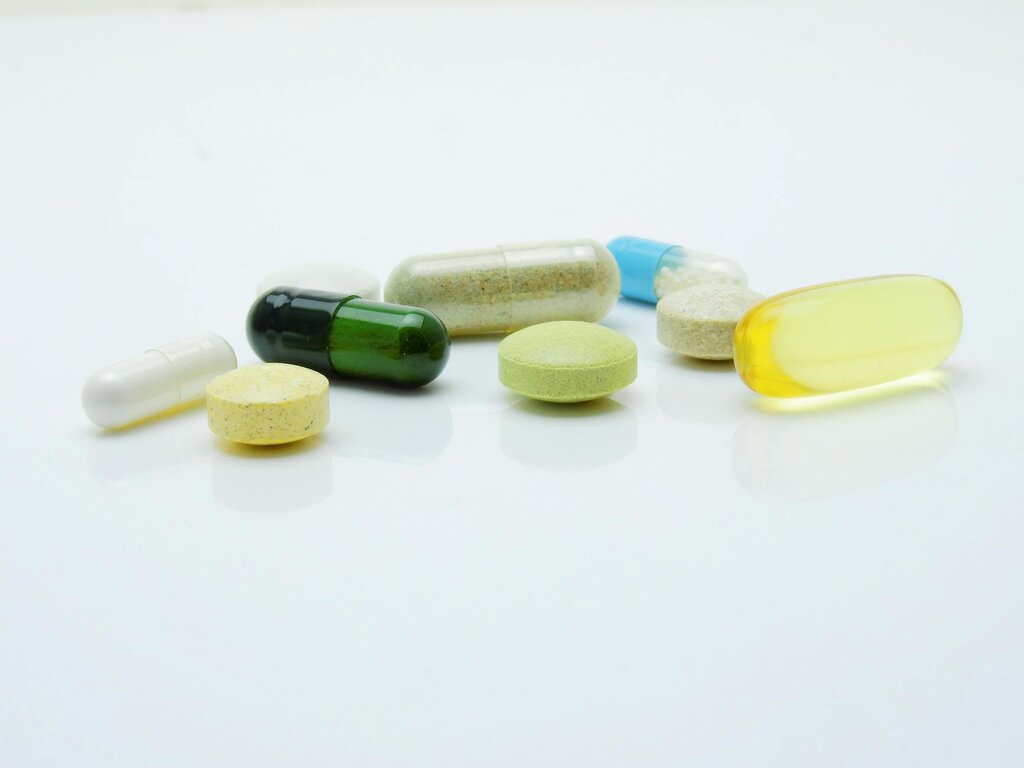Last Updated: 31/07/2025
Flatulence in Dogs: Causes and Solutions
Does your dog produce room-clearing gas? Read on to see how you can help to reduce the flatulence and restore harmony to your household.
Author: Dr Carla Paszkowski BVSc (Hons)
Reading Time: 7 minutes - short read
Is your dog farting up a storm? Flatulence, or excessive gastrointestinal gas, is a common and stinky problem suffered by dogs all over the world. As funny as the odd 'fluff' may be, excessive gas may be a sign that something is wrong with your dog's guts. Thankfully, there are plenty of things you can do to help solve this stinky issue - and most of them won't break the bank!
Is it normal for dogs to fart?
The first thing to clear up is that the odd fart is completely normal for dogs - just as it is for humans! However, just like humans, the odd 'gassy' day is fine but ongoing chronic farting and any putrid smelling gas is absolutely worth investigating.
What causes flatulence in dogs?

Farting in dogs can be caused by something as harmless as a change in diet, but it also could be a sign of an underlying gastrointestinal issue. The most common causes of dog farting include:
1. Unbalanced gut microflora
The microbes living in the gut are a surprisingly vital part of the body and gastrointestinal system. The population of microbes in the gut is also known as the 'gastrointestinal microbiome' or 'gut microflora'. All animals (including dogs) have billions of 'good bacteria' in their gut microbiome. These bugs help fight infections, strengthen the immune system, digest food, and produce nutrients for absorption.
A healthy microbiome should have a varied and diverse population made up of a mix of different microbe species - this healthy mix is also known as 'biodiversity'. A microbiome that is less biodiverse, or has a 'bad' species growing in dominant quantities, can be caused by a course of antibiotics, a change in diet, a parasite infection, food poisoning, when weaning off puppy milk, or during times of stress. Disrupted microflora can lead to a range of signs including flatulence.
To promote biodiversity in your dog's gut microbiome, it can help to feed a varied diet rich in prebiotics, and consider probiotic supplements too. Read more about the science behind probiotics, and our top recommendations in our article: Probiotics for Dogs.
2. The wrong diet
Tying in closely with the section above, the wrong diet can lead to excessive gas production in dogs. This could be caused by a number of different mechanisms.
Read our top suggestions for dogs with a touchy tummy in my other article The Best Diets for Pets with a Sensitive Stomach.
Diagnostic tests for dogs with flatulence

If your dog has excessive gas for longer than a few days, your vet may suggest some of the following tests:
Faecal examination and Faecal egg float: your vet may examine your dog's faeces under a microscope to observe for any abnormal microbe overgrowths or worm eggs
Faecal culture: a more accurate lab test that determines which bacteria are dominant in your pet's faeces. This is particularly useful if your dog has not responded to antibiotics
Blood and Urine Tests: this can help determine if any underlying illnesses are present, such as endocrine diseases or pancreatic insufficiency
Abdominal ultrasound: this helps determine if there are any structural issues such as a tumour, torsion, or foreign bodies
Elimination diet: a way of diagnosing food allergies. This dietary trial involves feeding a hydrolysed (allergen-free) diet for 4-6 weeks and then introducing one ingredient every week to observe for a reaction.
Treatment of Flatulence in dogs

The usual remedy for dogs with excessive farting is a swap to a highly digestible diet that is low in fibre and fat. This type of diet helps reduce the amount of food that needs to be digested and absorbed before reaching the colon.
Other non-medicated products that can help relieve flatulence include prebiotics (such as psyllium husk or Yucca schidigera) or probiotic supplements.
Medication for flatulence in dogs?
In severe cases, and only if the dog is not responding to a digestible diet and pre/probiotic therapy, medication may be required. Medical therapy may include flatulence relieving compounds including carminatives such as zinc acetate.
No 'one size fits all' food
Due to the wide range of causes of flatulence in dogs, it's impossible to recommend one miracle diet that will work for every dog. For instance - some dogs experience gas due to a high level of fermentable fibre in the diet and will benefit from a swap to a low fibre diet, whereas some dogs may be gassy due to a course of antibiotics disrupting their microflora and will benefit from some extra prebiotic fibre.
As such, the below recommendations have been made alongside the cause of the flatulence. And ultimately, it's best to consult with your vet before choosing the best diet for your dog.
Please note: the above recommendations are general advice only. All prescription diets should only be used under the direct recommendation of your treating vet.
Supplements for Reducing Gas in Dogs
When it comes to supplements to reduce flatulence in dogs, probiotics and prebiotics tend to be the gold standard recommendation to help balance the microflora.
Definitions: What's the difference between a Probiotic and a Prebiotic?
Probiotics desposit live good bacteria directly into the gut. This helps establish populations of known beneficial bacteria in the gut by providing organisms directly.
Prebiotics deposit 'food' for the good bacteria - usually fibre - into the gut. This food helps the microbes thrive and grow. Prebiotics are selectively fermented fibres that the microflora feed on, including disaccharides (lactulose, tagatose), oligo- or polysaccharides [fructo-oligosaccharides (FOS), mannan oligosaccharides (MOS), or long-chain prebiotics like inulin.
Should I give my dog a probiotic?
Any dog who has chronic gas, or who has recently been treated with a course of antibiotics, may benefit from a probiotic supplement in addition to a dietary trial. Additionally, you may wish to give a probiotic for ongoing maintenance of any allergic, skin or immune conditions.
Anecdotally, probiotics are often reported to assist dogs with chronic gastro conditions such as a sensitive stomach, recurrent diarrhoea, food sensitivities, bloating and gas, as well as those with chronic allergies. It's possible that these dogs are also treated with courses of antibiotics more frequently than other dogs, which may be the reason for the noticeable improvement. But regardless of the reason for the success, many believe that probiotics are worth a try - and they certainly can't do any harm.
Recommended Probiotics for Dogs
While the occasional doggy flatulence is a normal and often humorous part of pet ownership, persistent or particularly foul-smelling gas can signal an underlying issue that warrants attention.
By understanding the common culprits, from dietary indiscretions and imbalanced gut bacteria to underlying medical conditions and even enthusiastic eating habits, pet owners can take proactive steps to improve their dog's digestive comfort.
Simple changes in diet, the introduction of pre- or probiotic supplements, and ensuring a calm eating environment can often make a significant difference.
However, it's crucial to consult with your veterinarian if the problem persists or is accompanied by other gastrointestinal symptoms, as professional guidance can help identify and address any more serious health concerns, ultimately leading to a happier, healthier, and less fragrant companion.
Further Reading
Want to read more? Check out our other articles:
The Causes of Diarrhoea in Dogs
Obesity in pets: why it's a problem and what to do about it
History
Our experts continually monitor the health and wellness space and we update our articles when new information becomes available.
Wed 25 Jan 2023
Written by Dr Carla Paszkowski BVSc (Hons)Dr Carla Paszkowski BVSc (Hons)
Veterinarian
Dr. Carla graduated from the University of Queensland in 2013 with a Bachelor of Veterinary Science and worked for a number of years in small animal clinics across South East Queensland. While Carla enjoys most facets of clinical veterinary work, she holds a special passion for feline medicine, pocket pets, and nutrition.

